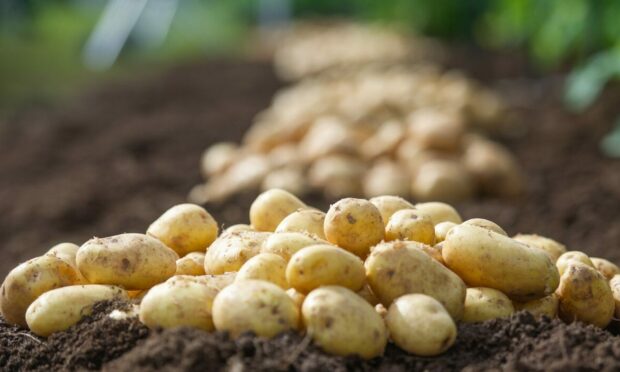Climate change is posing an “existential threat” to the UK’s potato industry, according to the James Hutton Institute’s (JHI) executive director of science.
At the annual Potatoes in Practice event at Invergowrie, Professor Lesley Torrance made the case for a new £40 million International Potato Innovation Centre (IPIC) to carry out focused research for practical solutions to the challenges of changing weather patterns.
Fleshing out proposals for state of the art facilities first mooted 12 months ago, Prof Torrance said the value of potatoes and potato products in the UK from primary production to value added products is £2 billion annually, but it is at the mercy of climate change.
“We need to develop new varieties quickly that will grow in warmer conditions and low input systems in time for the huge problems coming along the line with hotter weather and droughts which pose an existential threat to the industry,” she said.
JHI is the UK’s largest provider of potato research and it curates the vast Commonwealth Potato Collection (CPC) of species from around the world.
Prof Torrance said the institute currently had the skills and knowledge, but not the capital investment needed to exploit the latest breakthroughs in breeding and technology.
“We are starting a campaign for capital investment to support the new centre,” she said.
“We want a new modern glasshouse block and labs to have space to grow out the CPC to explore the variation in the collection and deep-mine for the traits such as heat tolerance and disease resistance that are needed, and to allow us to identify and validate genes.
“We also want below-ground field phenotyping facilities to examine roots and tuber development at scale as well as pilot processing facilities to investigate processing quality at an early stage in the breeding programme.”
A new IPIC would work in partnership with industry and other research providers to provide practical solutions required by breeders, farmers, processors and others.
The institute’s new International Barley Hub and Advanced Plant Growth Centre, financed by the Tay Cities Deal, are currently under construction, and it is understood an IPIC would complement these centres.
Prof Torrance said: “An IPIC together with these other investments will promote the east of Scotland as a fantastic research cluster for the food and drink industry.”


